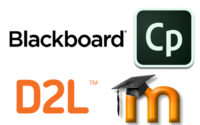
Strategies to Support Personal Knowledge Management Using a Wiki Site in Online Courses
This article discusses the strategies to support Personal Knowledge Management (PKM) using a wiki site in online courses and examines student perceptions of the helpfulness of the wiki site and the applied PKM-related strategies. Fifty-seven students in six online class sessions completed a 25-item perception survey. The results showed that students did perceive the helpfulness […]












